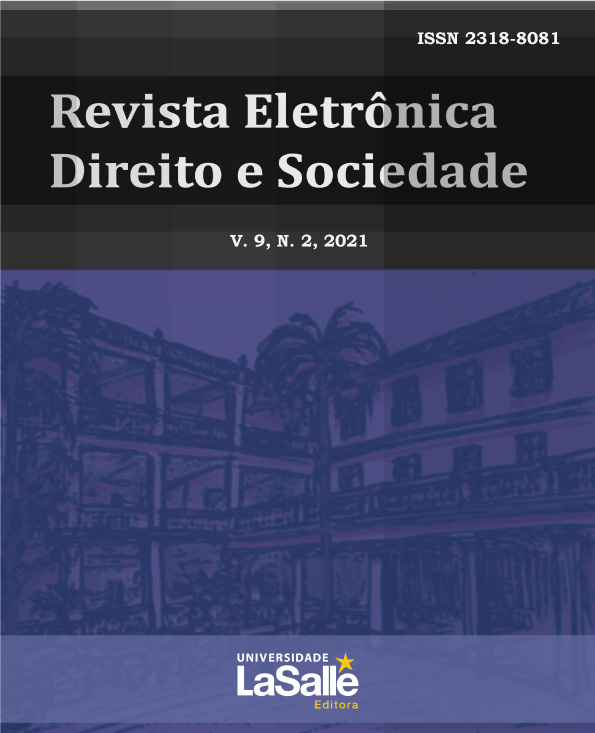Legal subjectivity and heterocisnormative pact
DOI:
https://doi.org/10.18316/redes.v9i2.6867Keywords:
Legal Subjectivity, Compulsory Heterosexuality, Women’s RightsAbstract
The legal system, as a state speech, the legal system as a state speech, has liberal content of the project of humanity formed by modernity, striving for universality. However, the current discursive configuration of Brazilian law also brings the material aspects of the context of its origin: centered on the figure of the man, white, bourgeois. By hiding the material aspects of his genealogy, he also hides the human pluriversality. Thus, the examination of the formation of legal subjectivity shows racialization and the sex-gender system hidden by the legal discourse and reveals how its structures corroborate the maintenance of exclusions in the social environment. To understand such mechanisms, the present research, characterized as a narrative bibliography, with a qualitative approach and a descriptive-explanatory character, intends to present how the Law produces the woman subject from the legal subjectivity characterized by heterocisnormativity and strengthened by the heterocisnormative pact, a category that is proposed in this research.
Downloads
Published
Issue
Section
License
Authors who submit their manuscripts for publication in the “REDES” Magazine agree to the following terms:
The authors claim to be aware that they retain copyright by giving “REDES” the right to publish.
The authors declare to be aware that the work submitted will be licensed under the Creative Commons Non-Commercial Attribution License which allows article sharing with acknowledgment of authorship and publication in this journal.
The authors declare to be aware that by virtue of the articles published in this journal have free public access.
The authors declare, under the penalty of the law, that the text is unpublished and original and that they are aware that plagiarism has been identified, plagiarized authors will be informed - willingly, to take legal action in the civil and criminal sphere - and, plagiarists will have their access to the magazine blocked.
The authors state that - in case of co-authoring - all contributed significantly to the research.
Authors are obliged to provide retractions and (or) corrections of errors in case of detection.
The authors are obliged not to publish the text submitted to “REDES” in another electronic journal (or not).
The Electronic Journal Law and Society - REDES - is licensed under a Creative Commons License. Attribution-NonCommercial 4.0 International.Based on work available at "http://revistas.unilasalle.edu.br/index.php/redes/about/submissions#copyrightNotice".
Permissions in addition to those granted under this license may be available at http://creativecommons.org/.

